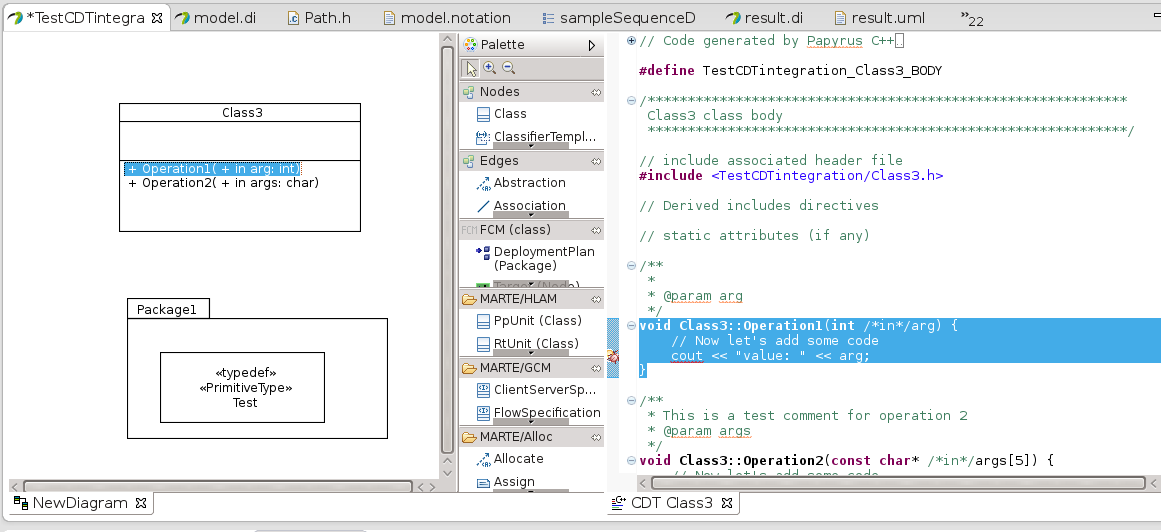Notice: this Wiki will be going read only early in 2024 and edits will no longer be possible. Please see: https://gitlab.eclipse.org/eclipsefdn/helpdesk/-/wikis/Wiki-shutdown-plan for the plan.
Difference between revisions of "Papyrus/Codegen/Cpp description"
| Line 1: | Line 1: | ||
The C++ code generation is available in the extra plugins of Papyrus. Make sure to unselect "Group features by category" and install "Papyrus C++ profile, view and code generation (Incubation)" | The C++ code generation is available in the extra plugins of Papyrus. Make sure to unselect "Group features by category" and install "Papyrus C++ profile, view and code generation (Incubation)" | ||
| − | After installation, you can import the plugin org.eclipse.papyrus.cpp.test into your workspace. Within, you can find a sample model called | + | After installation, you can import the plugin org.eclipse.papyrus.cpp.test into your workspace. Within, you can find a sample model called "TestCDTintegration". Once opened, you should see the following screen. |
[[File:cdt-editor.png]] | [[File:cdt-editor.png]] | ||
| − | The CDT editor appears within a tab of Papyrus. This enables a side-by-side view of model and code. The editor can be invoked via the context menu of a class, operation or transition (within a statechart). Synchronisation is done, when the CDT editor looses focus. | + | The CDT editor appears within a tab of Papyrus. This enables a side-by-side view of model and code. The editor can be invoked via the context menu of a class, operation or transition (within a statechart). Synchronisation is done, when the CDT editor looses focus. When model elements change, e.g. is you rename an operation, the code is regenerated and an update is done. It should not be possible to get conflicting changes, since a change in the model implies that the focus is no longer on the textual editor, i.e. changes in the texteditor should be already in the model. |
Revision as of 07:16, 19 November 2013
The C++ code generation is available in the extra plugins of Papyrus. Make sure to unselect "Group features by category" and install "Papyrus C++ profile, view and code generation (Incubation)"
After installation, you can import the plugin org.eclipse.papyrus.cpp.test into your workspace. Within, you can find a sample model called "TestCDTintegration". Once opened, you should see the following screen.
The CDT editor appears within a tab of Papyrus. This enables a side-by-side view of model and code. The editor can be invoked via the context menu of a class, operation or transition (within a statechart). Synchronisation is done, when the CDT editor looses focus. When model elements change, e.g. is you rename an operation, the code is regenerated and an update is done. It should not be possible to get conflicting changes, since a change in the model implies that the focus is no longer on the textual editor, i.e. changes in the texteditor should be already in the model.

